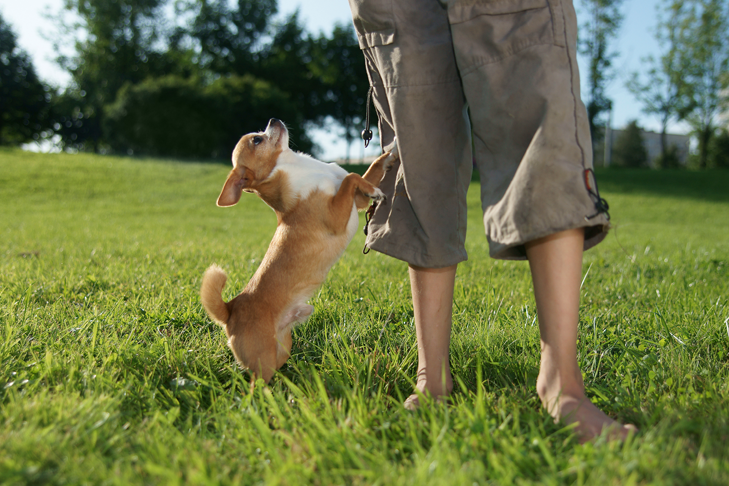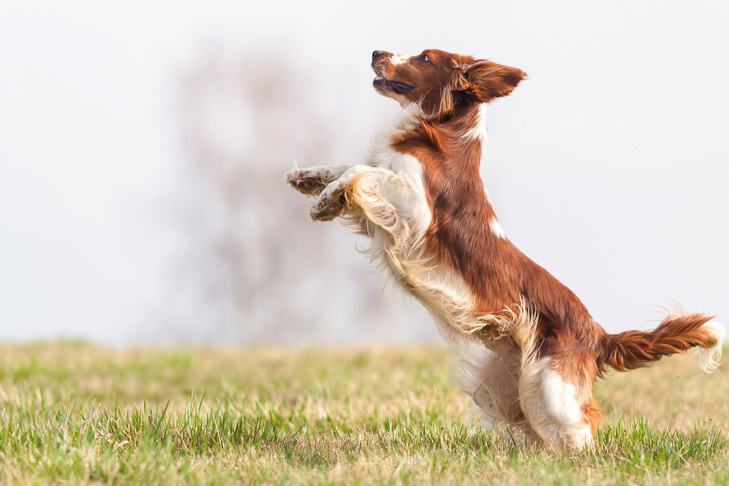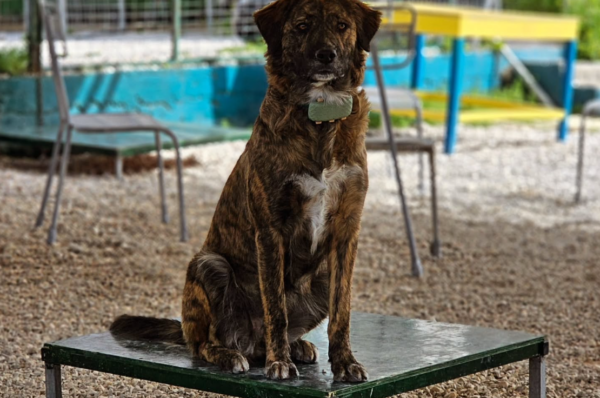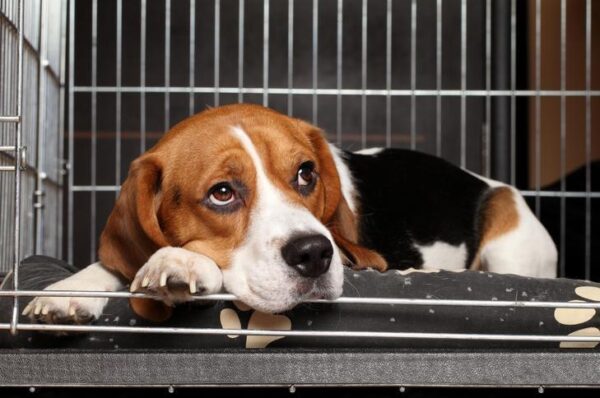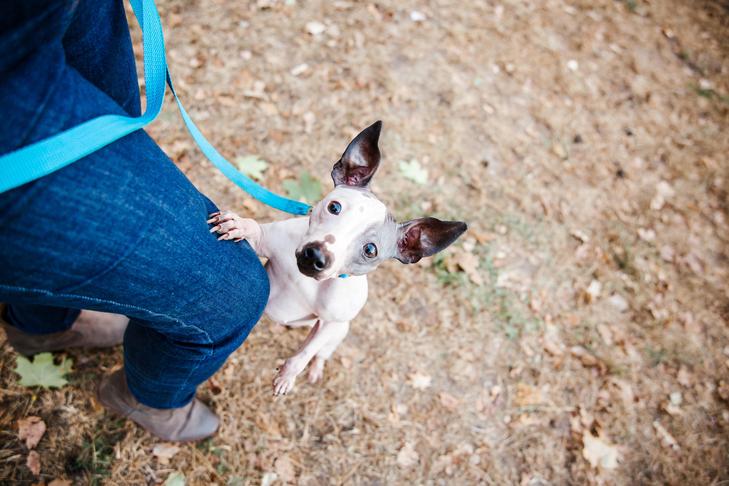
Jumping when greeting is a common dog behavior problem. Not only is it annoying, but large breeds can knock people over, which is especially dangerous for children and seniors. Even small breeds can scratch your legs or get muddy paws on your clothes. However, your dog is simply trying to say “hello” face-to-face. Plus, jumping is an effective way to get your attention. So, how do you stop your dog from jumping when it’s such a natural canine behavior?
Teach your dog a greeting rule, such as “keep your front paws on the floor.” It’s far safer, more polite, and gives your pet an alternative way to welcome you home and earn your attention. These 10 tips will help you teach your dog appropriate greeting behavior. Soon, your dog will know exactly how to say “hi” to humans.
1. Only Greet Your Dog When They Have Four Paws on the Floor
The most effective way to deal with problem behavior is to teach your dog an incompatible alternative behavior. Your dog will learn faster and easier if you tell them what to do rather than just what not to do. In the case of jumping, that could be teaching your dog to keep all four paws on the floor. They can’t jump and stand at the same time. Or perhaps you want them to sit or lie down for greetings. Whatever rule you choose, only greet your dog and provide attention when they are following the rule. And be consistent. For example, don’t let your dog jump on you when you’re in jeans but not when you’re in a suit.
2. Give Attention As Soon As Your Dog’s Front Feet Hit the Floor
Dogs repeat behaviors that get them what they want. So, as long as your dog is following your greeting rule like front feet on the floor, provide praise and petting. Your dog wants the reward of your attention, so make sure they get it immediately whenever they’re doing the right thing, especially while they’re still learning. Don’t delay your greeting while you remove your coat and shoes. Your dog might become impatient and try something else to get you to notice them.
3. Remove Attention When Your Dog Jumps
On the flip side, the only way to stop jumping is to stop rewarding it. Never reinforce a behavior you want to eliminate. If your dog jumps on you, quickly take away what they want – your attention. Try turning your back or calmly walking away so your dog realizes jumping has the opposite effect to what they intended. But as soon as your dog is four on the floor again, turn back and quietly praise and pet them. This will help your dog see their behavior as a switch that turns your attention on and off.
4. Set Up Your Dog for Success
Ignoring jumping and rewarding proper greetings is effective, but it can be frustrating for your dog as it requires trial-and-error learning. Set up your dog for success by making it easier for them to follow your greeting rule. If that’s to sit for greetings, then ask them to sit as soon as you come in the door. If you require four on the floor, then encourage them to stay standing.
A fabulous way to keep your dog from jumping is to scatter treats on the floor. After all, most dogs can’t resist free goodies, and they can’t jump and sniff the ground at the same time. You need to be fast, but if you provide the food before your dog even thinks about jumping, you can reward four on the floor with both attention and treats. Your dog will soon figure out your greeting rule and you can start to phase out the food.
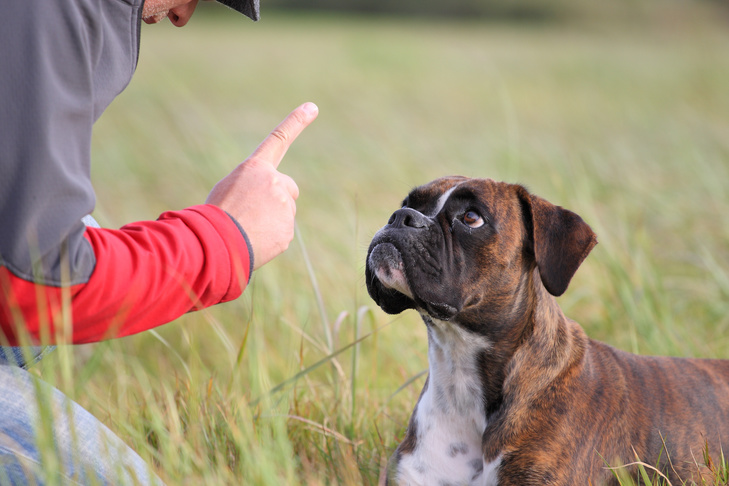
5. Always Reward Your Dog for Proper Greeting Behavior
Your dog will learn proper greeting behavior faster if their actions immediately impact your attention – front feet on the floor gains attention and jumping makes it go away. That means you should always reward your dog if they follow your greeting rule. Never withhold your attention when your dog’s feet finally touch the floor. You might be irritated, particularly if you just tolerated five solid minutes of jumping, but don’t let that impact your response. It will confuse your dog if the rule isn’t consistently reinforced.
6. Don’t Grab or Push Your Dog Away
Remember that your dog is jumping to get your attention. And even a negative response, like grabbing your dog, holding their paws, or pushing them away, is still attention and therefore will reward the jump. Therefore, instead of reducing the frequency, this can cause more jumping in the long run. And worse, for many dogs, getting physical like that can be misinterpreted as initiating roughhouse play. They will come back jumping harder and stronger thinking it’s all part of the game.
7. Don’t Put Your Knee Up When Your Dog Jumps
You may have heard that putting your knee up to block your dog’s chest as they jump will eliminate the behavior. But as discussed above, kneeing can be interpreted as attention or a wrestling game by some rough and tumble personalities causing the opposite effect. But even worse, for most dogs it will create distrust and erode the human-canine bond. After all, your dog is simply trying to say “hello” and you are punishing them in response. You might even injure them. If your dog doesn’t trust you, that can lead to other behavior problems such as not coming when called.
8. Keep Greetings Low-Key While Your Dog Is Learning
Because your dog is so happy to see you, it’s hard for them to control their excitement. It takes a lot of emotional self-control to resist the natural urge to jump, and instead obey the new greeting rule. Make it easier for your dog by keeping greetings low-key. Dogs can read our emotions, so if you’re riled up, they will be too. Instead, stay calm and quiet, even when you praise. Once your dog starts to catch on, you can increase your enthusiasm bit by bit until you can show just as much excitement as they do.
9. Prevent Your Dog From Jumping on Guests
You aren’t the only one reinforcing your dog’s behavior. Other family members, guests, and even strangers on the street can all reward jumping if you aren’t careful. To prevent that, use management techniques like leashing your dog so they can’t approach. Even better, send your dog to their place such as a mat or bed, or put your dog in their crate so they are nowhere near the door. You can also use a baby gate to block the front hall.
10. Ask Guests and Strangers to Follow Your Greeting Rule
Don’t be afraid to speak up and be clear with guests and strangers about what your dog should do before they say “hello.” While your dog is still learning, ask people to completely ignore your dog unless you say it’s okay. And try to avoid strangers until your dog has mastered greetings with friends and family who you know will cooperate. Instead, use a “watch me” cue or distract your dog with a hand touch or toy until the stranger has walked past.
By Stephanie Gibeault, MSc, CPDT
